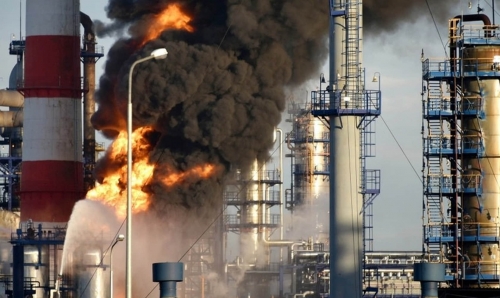The oil and gas industry has long been a cornerstone of global energy supply, driving economic growth and providing energy security. As the world transitions towards cleaner energy sources, the industry faces unprecedented challenges and opportunities. This article delves into the key innovations shaping the future of oil and gas, the challenges ahead, and the potential opportunities for stakeholders.
Innovations in the Oil and Gas Industry
Digital Transformation:
The integration of digital technologies is revolutionizing the oil and gas sector. Advanced analytics, artificial intelligence (AI), and machine learning are being used to optimize operations, enhance safety, and reduce costs. Predictive maintenance, for example, allows companies to anticipate equipment failures before they occur, minimizing downtime and saving millions.
Automation and Robotics:
Automation is playing a critical role in improving efficiency and safety in the oil and gas industry. Robotic systems are being deployed for tasks ranging from pipeline inspections to offshore drilling operations. These technologies not only reduce human risk but also increase precision and reliability.
Enhanced Oil Recovery (EOR):
EOR techniques are crucial for maximizing the extraction of oil from existing reservoirs. Innovations such as carbon capture and storage (CCS), chemical EOR, and thermal recovery methods are helping to unlock previously inaccessible resources, extending the life of oil fields and improving overall recovery rates.
Sustainable Practices:
The industry is increasingly focusing on sustainability to meet regulatory requirements and societal expectations. Renewable energy integration, carbon footprint reduction, and the adoption of green technologies are becoming central to the strategies of major oil and gas companies. Investments in biofuels, hydrogen, and renewable natural gas are also gaining traction.
Challenges Facing the Oil and Gas Industry
Regulatory and Environmental Pressures:
Stricter environmental regulations and the push for decarbonization are significant challenges for the oil and gas industry. Companies must navigate complex regulatory landscapes while investing in technologies and practices that reduce environmental impact.
Market Volatility:
The oil and gas market is notoriously volatile, with prices influenced by geopolitical events, supply and demand fluctuations, and economic conditions. Companies must develop robust risk management strategies to navigate this unpredictability.
Talent Shortage:
Attracting and retaining skilled professionals is a persistent challenge. As the industry evolves, there is a growing need for talent with expertise in digital technologies, data analysis, and sustainable practices.
Infrastructure Aging:
Much of the industry’s infrastructure is aging, requiring significant investment in maintenance and upgrades. Modernizing infrastructure is essential to ensure safety, efficiency, and compliance with regulatory standards.
Opportunities for Growth
Investment in Renewable Energy:
The transition to renewable energy sources presents a significant growth opportunity. By diversifying portfolios to include wind, solar, and other renewable energies, oil and gas companies can position themselves as integrated energy providers, balancing traditional fossil fuel operations with sustainable alternatives.
Innovation in Clean Technologies:
Developing and deploying clean technologies such as CCS, green hydrogen, and advanced biofuels can open new revenue streams and enhance the industry’s environmental credentials. Collaboration with tech companies and research institutions can accelerate these advancements.
Emerging Markets:
Emerging markets, particularly in Asia and Africa, offer vast opportunities for growth. Increasing energy demand in these regions provides a lucrative market for oil and gas companies to expand their operations and establish new partnerships.
Strategic Partnerships and Mergers:
Strategic partnerships and mergers can drive growth by combining resources, expertise, and technologies. Collaborations with renewable energy firms, technology companies, and other stakeholders can create synergies and enhance competitiveness.
Conclusion
The oil and gas industry is at a pivotal moment, with innovations driving transformation and sustainability becoming a core focus. While challenges are significant, the opportunities for growth and evolution are equally compelling. By embracing digital transformation, investing in clean technologies, and exploring new markets, the industry can navigate the transition to a more sustainable energy future.

%20(1).png)



